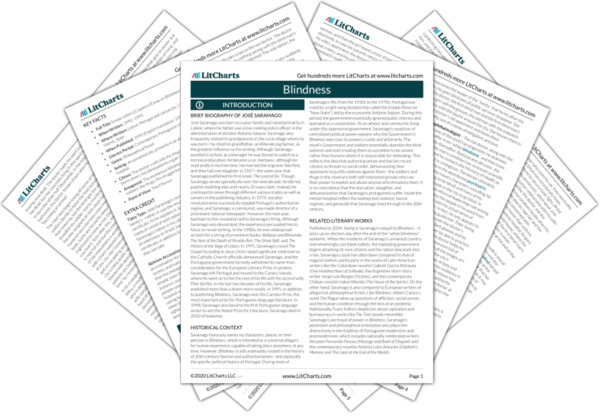Although the doctor’s wife has made it to the storeroom through a combination of reason and sight—which generally go hand-in-hand throughout this novel—she soon finds both of these faculties useless in helping her descend to the basement. Now, she is forced into an experiment in radical empathy: momentarily struck blind, she confronts the terror that everybody around her has been experiencing. The reader, who has largely followed the doctor’s wife’s perspective through the narrative and has accordingly been able to understand events through what is
visible to her, is also suddenly forced to imagine this same darkness and confusion.
